Rulers
March 1996
1
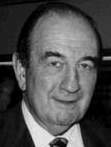
Samuels |
Australia: Gordon Samuels is sworn in as governor of New South Wales.
Cape Verde: In a cabinet reshuffle, Amílcar Spencer Lopes becomes foreign minister.
India: Krishna Pal Singh becomes governor of Gujarat.
2
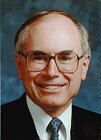
Howard | 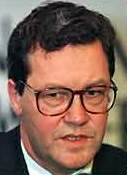
Downer |
Australia: The conservative opposition wins the parliamentary election. The alliance of the Liberal and National parties garners 54% of the vote; the ruling Labor Party gets 45.7%. The leader of the Liberal Party, John Howard, is sworn in as prime minister on March 11. Alexander Downer becomes foreign minister, Ian McLachlan defense minister, and Peter Costello treasurer.
Austria: Former Burgenland premier (1938) Tobias Portschy dies.
Dominican Republic: Former president (1982) Jacobo Majluta Azar dies.
Switzerland: Former Landammann of Glarus (1968-73) Fridolin Stucki dies.
3
Benin: None of the candidates in the presidential election receives the necessary majority. Incumbent president Nicéphore Soglo leads with 35.7%, followed by former president Mathieu Kérékou with 33.9% and Adrien Houngbédji with 18.7%; turnout is 86.9%. The runoff on March 18 is won by Kérékou with 52.5% of the votes against 47.5% for Soglo; turnout is 78.1%.
Spain: The oppositional People's Party (PP) led by José María Aznar wins parliamentary elections with 38.9% of the votes; the ruling Socialist party (PSOE) comes in second with 37.5%. The Izquierda Unida (IU) receives 10.6%. Turnout is 78.1%. In the 350-seat parliament, the PP will have 156 seats, PSOE 141, IU 21, and other parties 32.
4
Kyrgyzstan: President Askar Akayev presents a new government. Prime Minister Apas Jumagulov and most of his ministers are reappointed.
5
Bangladesh: Former foreign minister (1971) and president (1975) Khandakar Mushtaq Ahmed dies.
Haiti: Prime Minister Rosny Smarth wins a parliamentary confidence vote with 54 votes against 16.
6
Brazil: Former governor of Minas Gerais (1961-66) and foreign minister (1967-69) José de Magalhăes Pinto dies.
Comoros: In the first round of presidential elections, Mohamed Taki Abdoulkarim secures 21.3% of the vote; his opponent Abbas Djoussouf takes second place with 15.6%. Turnout is 64%.
Haiti: Rosny Smarth takes office as prime minister.

Yilmaz |
Turkey: A new coalition government is formed between the Motherland Party and the True Path Party. A rotation system is agreed on, whereby Mesut Yilmaz is to be prime minister for ten months, after which he is to be succeeded for two years by current prime minister Tansu Çiller, before he is to take the office again in 1999. Emre Gönensay becomes foreign minister, Oltan Sungurlu defense minister, Ülkü Güney interior minister, and Lütfullah Kayalar finance minister.
8
Iran: Parliamentary election. Turnout is about 80%. Political parties are not allowed.
9
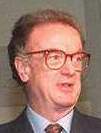
Sampaio |
Portugal: New president Jorge Sampaio takes office, succeeding Mário Soares.
12
Austria: A new coalition government under Chancellor Franz Vranitzky (SPÖ) is sworn in. The cabinet is reduced from 20 to 16 ministers, of which the SPÖ provides 8, the ÖVP 7; one is independent. Vice chancellor and foreign minister: Wolfgang Schüssel (ÖVP); economy: Johannes Ditz (ÖVP); finance: Viktor Klima (SPÖ); interior: Caspar Einem (SPÖ).
Hungary: Former prime minister (1965-67) Gyula Kállai dies.
15
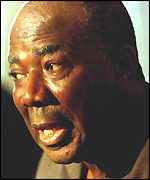
Kabbah |
Sierra Leone: Ahmad Tejan Kabbah wins the presidential election runoff with 59.5% of the total against 40.5% for his rival, John Karefa-Smart. He takes office March 29. Albert Joe Demby becomes vice president, Maigore Kallon foreign minister, and Thaimu Bangura finance minister.
16
Comoros: The second round of presidential elections is won by Mohamed Taki Abdoulkarim with 64.3% of the votes. Turnout is just under 62%. He takes office March 25. On March 27 he appoints Tadjidine Ben Said Massounde as prime minister. Said Omar Said Ahmed becomes foreign minister.
17
Mauritania: Foreign Minister Mohamed Salem Ould Lekhal is dismissed. President Maaouya Ould Sid'Ahmed Taya appoints Lemrabott Sidi Mahmoud Ould Cheikh Ahmed to succeed him.
The Sudan: In elections held between March 6 and 17, President Omar Hassan Ahmad al-Bashir is reelected with 75.7% of the votes. Turnout is 69%.
Zimbabwe: President Robert Mugabe is reelected for another 6 years in elections held March 16 and 17. He gets 92.7% of the votes at a turnout of 31.7%.
18
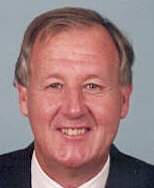
Rundle | 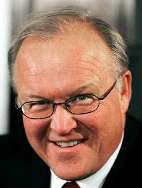
Persson |
Australia: Tony Rundle (Liberal) takes office as premier of Tasmania.
Paraguay: Former foreign minister (1990-93) Alexis Frutos Vaesken dies.
Sweden: Prime Minister Ingvar Carlsson announces his resignation. Parliament elects Finance Minister Göran Persson as his successor on March 21. The new government, presented on March 22, consists of 10 men and 11 women. Lena Hjelm-Wallén continues as foreign minister; the new finance minister is Erik Ĺsbrink.
21
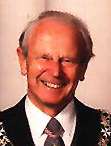
Hardie Boys |
New Zealand: Sir Michael Hardie Boys is sworn in as governor-general.
23
France: The president of the Regional Council of Alsace, Marcel Rudloff, dies.
Taiwan: The country's first direct presidential election is won by President Lee Teng-hui with 54% of the votes; the candidate of the pro-independence Democratic Progressive Party, Peng Ming-min, receives 21.1% and Lin Yang-kang of the New Party 14.9%. Turnout is about 76%.
24
Germany: Elections are held in three states. In Baden-Württemberg the CDU receives 41.3%, the SPD 25.1%, the Greens 12.1%, the FDP 9.6%, and the Republicans 9.1% (turnout 67.5%). In Rheinland-Pfalz the result is: SPD 39.8%, CDU 38.7%, FDP 8.9%, Greens 6.9% (turnout 70.8%); and in Schleswig-Holstein: SPD 39.8%, CDU 37.2%, Greens 8.1%, FDP 5.7% (turnout 71.8%).
Iraq: In parliamentary elections, all 160 candidates of the ruling Ba`th Party win seats. Independents fill the remainder of the 220 seats. Turnout is 93.5%.
Russia: With 93% of the vote, Mintimer Shaymiyev is reelected president of Tatarstan.
26
United States: Former governor of Maine (1955-59) and secretary of state (1980-81) Edmund S. Muskie dies.
27
Djibouti: Defense Minister Ahmed Boulaleh Barreh is dismissed.
28
Egypt: Former prime minister (1966-67) Muhammad Sedki Suleiman dies.
29
Bangladesh: Prime Minister Khaleda Zia resigns. The next day Mohammad Habibur Rahman is appointed chief adviser (caretaker prime minister).
30
Australia: In state elections in Victoria, the ruling Liberal-National coalition is confirmed. The Liberal Party wins 44% of first-preference votes, the Labor Party 43.1%, and the National Party 6.7%.









